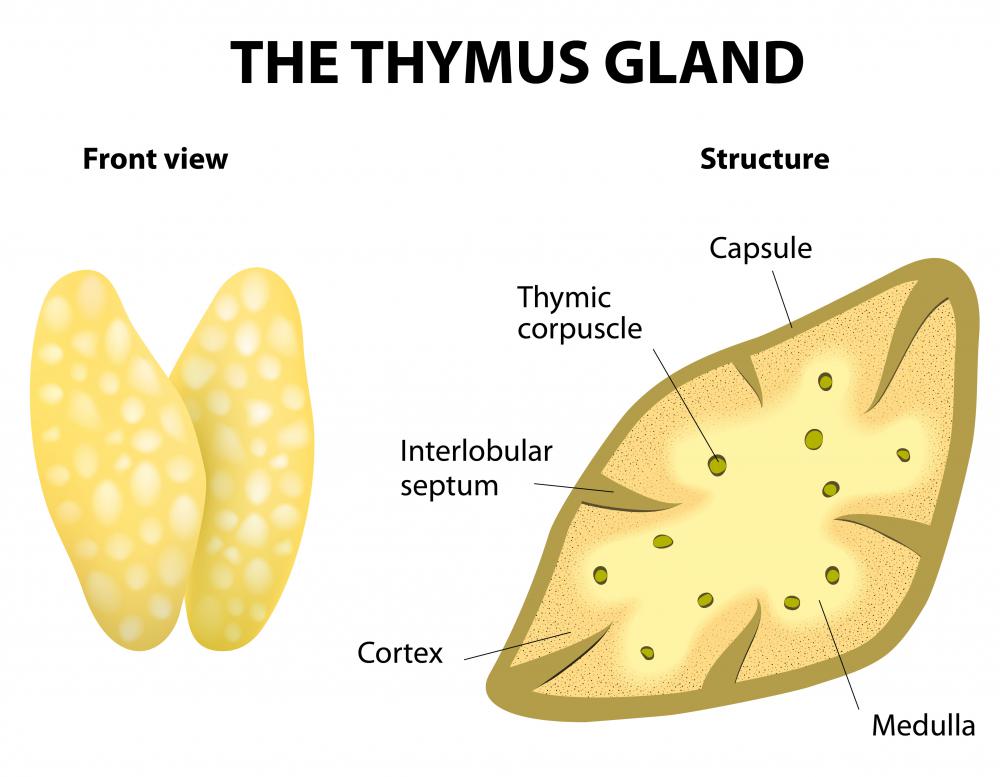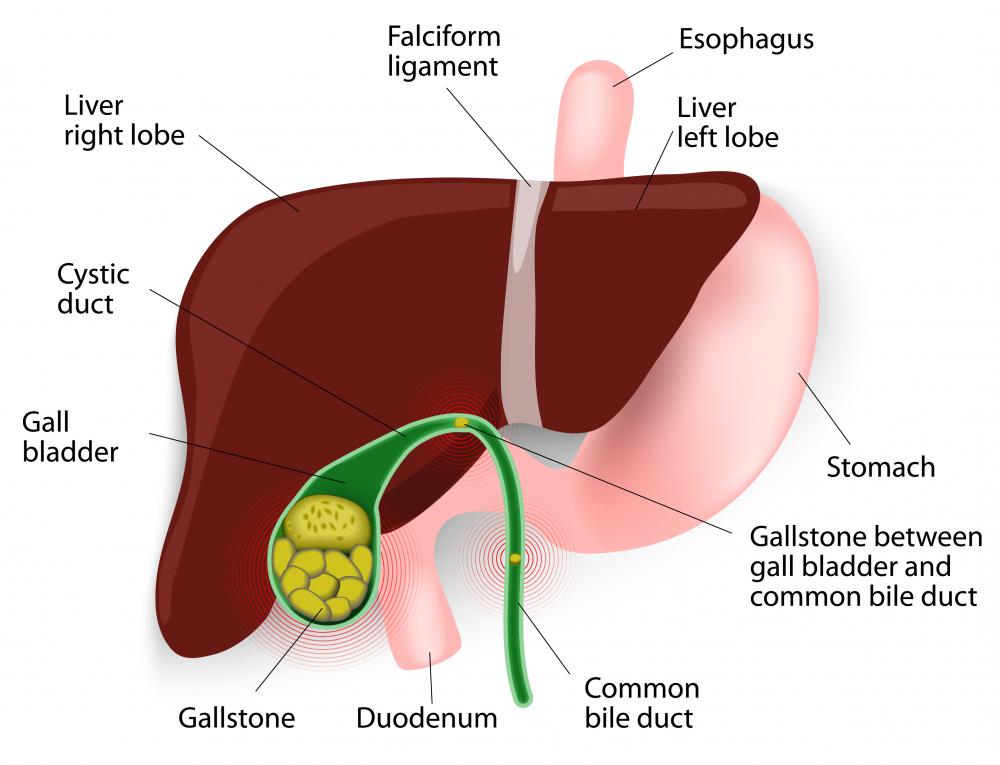At TheHealthBoard, we're committed to delivering accurate, trustworthy information. Our expert-authored content is rigorously fact-checked and sourced from credible authorities. Discover how we uphold the highest standards in providing you with reliable knowledge.
What is a Lipotropic?
A lipotropic is any of a category of nutrients and compounds that can help break down fats in the liver, thus aiding with and facilitating digestion. Breaking down fats is perhaps the most important function of these substances, but it isn’t usually the only thing they do. They can help lower cholesterol, can promote detoxification of amines, and can strengthen the thymus gland. Three of the most important and prolific lipotropic compounds are choline, inositol, and methionine; these are usually the most readily accessible, but are by no means the only options. They tend to be the best studied, though, and most of what scientists know about the behavior of the compounds more generally comes from an understanding of these three. Humans and most animals synthesize them naturally, but in most cases it’s also important that at least some come from diet, too. People who have chronic liver problems or other medical issues related to digestion may also need to take them in supplement form. They’re sometimes also used by people in an attempt to lose weight and speed up metabolism, though there isn’t much science backing this up and the process can be dangerous if executed improperly.
Core Tasks and Functions

The man role of any lipotropic is the breakdown fats in the liver. Not all fats are bad, and indeed most researchers agree that people need at least some fat in their diet in order to achieve optimal health. Fats aren’t usually water-soluble, though, and processing them during digestion often requires something of a complicated process. This is where lipotropics come in.

These compounds help fat breakdown by boosting the production of lecithin by the liver to dissolve cholesterol. This also reduces a person’s chances of developing gallstones, which are solid masses that form in the gallbladder, a small glad attached to the liver. Additionally they can detoxify amines, nitrogen-based compounds that are often essential to digestion of complex proteins, but that can cause problems when in the bloodstream in excessive quantities. The compounds can also help prevent disease by strengthening the thymus gland. This is done by stimulating the growth of phagocytes and creation of antibodies and identifying and destroying foreign and abnormal tissues.
Main Sources

Most healthy people produce some lipotropics all on their own as a part of normal digestion. These chemicals are usually synthesized by the liver directly, or else come in through the gallbladder. Some, like inositol, originate in the kidney. There are also a number of dietary sources; foods like shellfish, eggs, and most poultry meat are all good sources of choline, for instance, and these same foods are usually good sources of methionine, too. Many dark vegetables and leafy greens also contain these sorts of nutrients, though not as abundantly.
Choline is important in fat metabolism. It is vital in making the liver function normally. Lack of choline in the body can result in fatty degeneration of the liver, cirrhosis, and thickening of the walls of the arteries.

Inositol, together with choline, performs a major part in avoiding the accumulation of fats in the liver. It helps in the growth of hair. It is also known to ease panic attacks and depression. Along with vitamin E, inositol can help in the treatment of muscular dystrophy. Inositol can be exhausted by the presence of caffeine.
Methionine is a vital amino acid that produces lecithin to trim down cholesterol levels and liver fat. It contains sulfur and helps to maintain the kidneys. It also acts as a mechanism in triggering choline and inositol to perform their respective functions. Liver damage, which can be caused by acetaminophen poisoning and chronic alcohol use among other things, can also be treated using methionine.
Pharmaceutical Supplements

When used as a dietary or medicinal supplement, these compounds usually come in one of two forms: tablet or intramuscular injection. A doctor or nutritionist generally prescribes tablets of about 0.035 ounces (1,000 mg) in three equal doses daily. Around 0.034 ounces (1 cc) of a liquid-based injection, on the other hand, is typically given to a person once a week. Choosing the right presentation and dosage usually depends both on the patient as well as his or her condition.
Side Effects

There are some known side effects of these compounds, particularly when they’re taken in concentrated form. Mild side effects include swelling of the lips, mouth, or face, and bad breath has also been commonly reported. Diarrhea and intestinal distress plague some people as well. On the serious side, people may experience an elevated heart rate, breathing difficulties, and chest tightening. A person taking these compounds may also experience an allergic reaction. Itching, hives, and rashes are some of the most common adverse reactions.

Food and drug authorities in certain localities regulate the use of some lipotropics due to their use in the manufacture of street drugs such as methamphetamines. Some governments either ban or restrict the sale of any compound that contains amphetamine-like materials no matter its intended purpose. Even in places where these compounds are freely available, most health experts recommend that people don’t take them unless on the advice of a doctor or other qualified health professional.
AS FEATURED ON:
AS FEATURED ON:



















Discussion Comments
@MrsWinslow - Lipotropic drugs for weight loss are things like ephedra, which was banned for causing serious illnesses. You are probably thinking of drugs like orlistat (Alli over the counter) which seem to work differently from lipotropics. (I'm no expert, but what orlistat does is prevent the enzyme lipase from breaking down fat, which sounds different.)
I remember reading about these drugs that they make you get really sick if you eat a high-fat meal, so their biggest benefit might actually be the behavior modification aspect!
If you are trying to lose weight to get normal menstrual cycles going, make sure to look up the Newsweek article from a few years back about the fertility diet. It talks about what foods are helpful. (I remember that vegetable protein and whole milk dairy were both good and that white carbs were bad, but you should read the details for yourself.) Good luck with your baby dream!
I've read about weight loss drugs that somehow prevent your body from absorbing fat. Are those lipotropic drugs for weight loss? Or do they work via some other mechanism?
I've been told that I need to lose at least thirty pounds to have a good chance of getting pregnant (I have PCOS) so I'm looking at all my options. I'm not really leaning toward taking drugs, but I want to know what's out there.
Post your comments